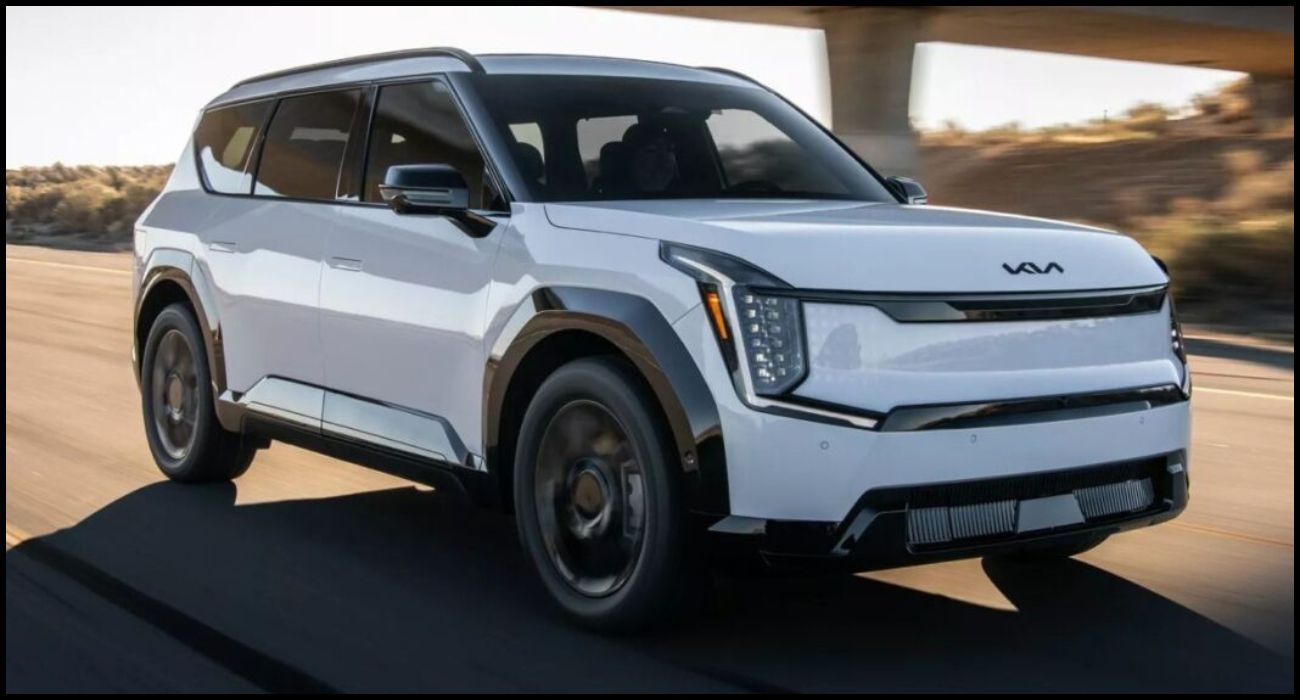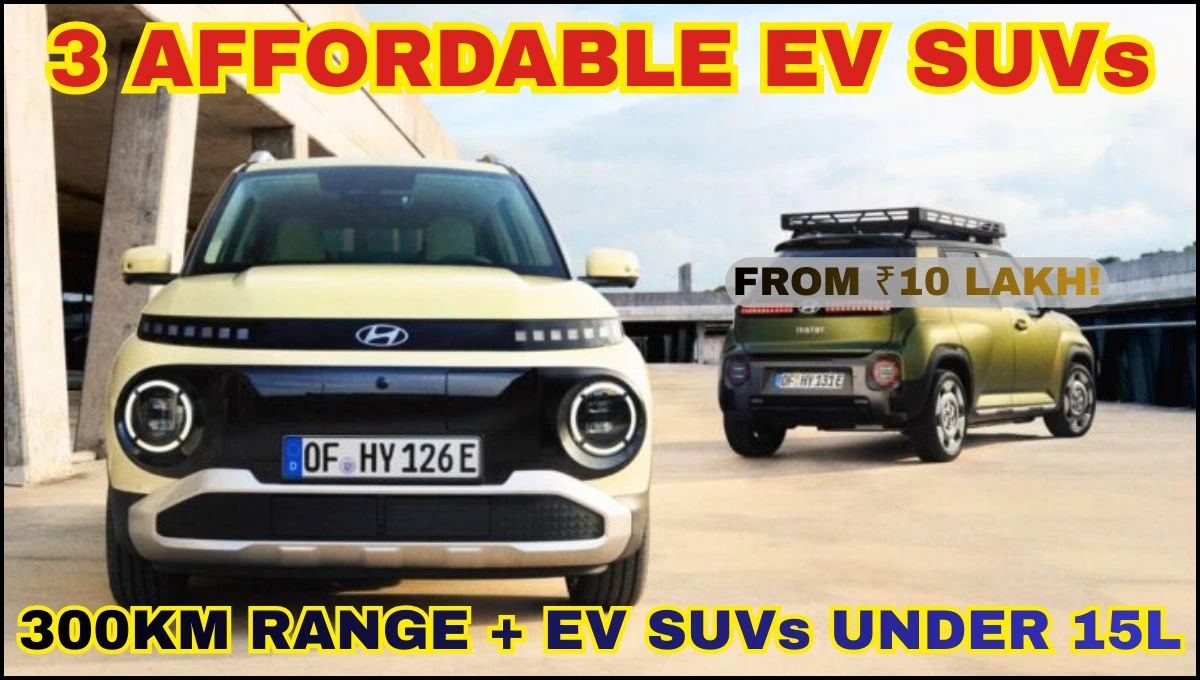Import Tax on Electric Cars : Government Introduces New Scheme to Position India as a Leading Electric Car Manufacturing Hub
Import Tax on Electric Cars In a major move aligned with the Make in India initiative, the government is set to launch a new scheme aimed at promoting India as a key manufacturing destination for electric vehicles. This effort complements the recent reduction in import taxes on electric cars from a steep 110% down to just 15% making India an attractive market for EV manufacturers and buyers alike. The policy is expected to boost domestic production, attract investments, and accelerate the adoption of electric vehicles across the country.
The Ministry of Heavy Industries (MHI) is set to launch the Scheme to Promote Manufacturing of Electric Passenger Cars in India (SPMEPCI) in the near future. The government has finalized the scheme’s guidelines, and several leading global automakers have already shown strong interest.
Also read : Tata Harrier EV Launched in India at ₹21.49 Lakh with 627 Km Range

Import Tax on Electric Cars Under SPMEPCI, eligible automakers will be allowed to import a limited quota of electric vehicles (EVs) as completely built units (CBUs) with a significantly reduced customs duty of 15%, compared to the usual rate of up to 110%. In exchange, these companies must commit to manufacturing electric cars in India with substantial localisation.
This scheme is targeted exclusively at well-established manufacturers with a global group-level revenue of at least ₹10,000 crore and a minimum fixed asset investment of ₹3,000 crore. Interested companies that meet these criteria will soon be able to apply by paying a non-refundable fee of ₹5 lakh.
Approved applicants under the Scheme to Promote Manufacturing of Electric Passenger Cars in India (SPMEPCI) will be required to invest a minimum of ₹4,150 crore in electric vehicle manufacturing within three years of receiving approval. Additionally, they must achieve a Domestic Value Addition (DVA) of 25% during this period, increasing it to 50% within five years.
According to a report from moneycontrol.com, these companies must generate at least ₹5,000 crore in revenue by the fourth year and ₹7,500 crore by the fifth year. Failure to meet these targets will result in penalties of up to 3% on the revenue shortfall.
Also read : Top 5 Upcoming SUVs Set to Launch in India by 2025-26
The Ministry of Heavy Industries (MHI) will consider both greenfield and brownfield projects as part of the minimum ₹4,150 crore investment. Eligible expenditures include investments in new plants, machinery, equipment, utilities, and engineering R&D. However, land costs will not be counted, while building costs for the main plant and utilities can be included only up to 10% of the committed investment. Furthermore, expenses on charging infrastructure will be considered up to 5% of the total investment.

Import Tax on Electric Cars Under the scheme, approved manufacturers will be allowed to import up to 8,000 electric cars with a minimum CIF value of $35,000 at a reduced customs duty of 15%. The total duty waived will be capped at ₹6,484 crore or the amount of their committed investment, whichever is lower.
While Tesla has reportedly decided against manufacturing electric cars in India, other prominent brands such as Mercedes-Benz, Hyundai, Kia, Volkswagen, and Skoda have expressed interest in the program.
FAQ : Import Tax on Electric Cars
| Question | Answer |
|---|---|
| What is the SPMEPCI scheme? | The Scheme to Promote Manufacturing of Electric Passenger Cars in India (SPMEPCI) is a government initiative to encourage domestic production of electric cars by providing customs duty benefits. |
| Who is eligible to apply for the SPMEPCI? | Only well-established automakers with a global group revenue of at least ₹10,000 crore and fixed asset investment of ₹3,000 crore can apply. |
| What is the minimum investment required under the scheme? | Approved applicants must invest a minimum of ₹4,150 crore in manufacturing electric cars within three years. |
| Are both greenfield and brownfield projects eligible? | Yes, both greenfield (new) and brownfield (existing) projects qualify towards the investment criteria. |
| What is Domestic Value Addition (DVA) requirement? | Applicants must achieve 25% DVA within three years and increase it to 50% within five years of approval. |
| What customs duty benefit does the scheme offer? | Automakers can import up to 8,000 electric cars via CBU route at a reduced customs duty of 15% instead of the standard rate up to 110%. |
| Is there a revenue target for approved companies? | Yes, companies must generate a minimum revenue of ₹5,000 crore in the fourth year and ₹7,500 crore in the fifth year. |
| What happens if the revenue targets are not met? | Failure to meet revenue targets will incur penalties up to 3% on the deficit amount. |
| Are there any limits on the customs duty waiver? | The maximum duty waived will not exceed ₹6,484 crore or the total committed investment, whichever is lower. |
| Which companies have shown interest in the scheme? | While Tesla is reportedly not participating, brands like Mercedes-Benz, Hyundai, Kia, Volkswagen, and Skoda have expressed interest. |









